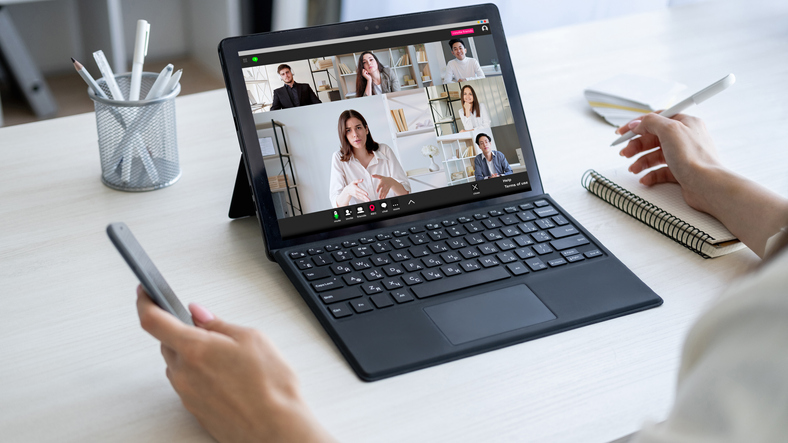If you’re making the career switch to a life coach, then establishing some foundational habits and structure to your session planning routine will help you develop effective life coaching programs, especially if you decide to start your own business. There are a number of variables you’ll need to consider when it comes to planning a coaching session while also ensuring that your clients feel comfortable and valued (Burton, 2022).
Rhodes Wellness College offers a Life Skills Coach Certificate that prepares students for a successful career in individual coaching and group facilitation. It prioritizes the flourishing of job-specific skills, such as knowledge of theory, communication skills, individual coaching techniques, and more. Continue reading to discover how to create the perfect life coach lesson once you earn your certificate.
Take Your Preparation Seriously
Ensuring that you are adequately prepared for each session after earning your life coach certification will help your clients gain trust and confidence in your abilities while also feeling that their time is being valued. It is essential to spend some time thinking about your upcoming session and actually preparing a plan, that way, you know exactly how to make sure the session is productive, and you are able to deliver a plan for your client’s growth (Frew, 2022).
Some tips for preparation include sending out a client intake form in advance for the client to relay important information about their situation, reviewing past sessions if this is a returning client, and look over what is included in your client’s package to ensure you meet their expectations (Frew, 2022). Organization is key for proper preparation, which is why Rhodes Wellness College focuses on the practical application of techniques throughout the program to help you get an idea of the work involved in proper preparation. In Module Four of your certification, you’ll gain experience researching and preparing multiple lesson plans to put your skills into practice.
Ease Into Your Sessions During a Life Coach Career
Jumping right into the session can be hard on some clients, especially if they aren’t in the right headspace to begin working through complex emotions and challenges they may be experiencing. It is recommended that you ease into your sessions with a “warm-up,” which helps create a safe space for your client to share what’s on their mind in order to achieve further growth (Burton, 2022). Incorporating simple but thoughtful small talk can help clients relax into their session while easing into more meaningful topics like how their week went or anything new they want to address with you. This process can be seen as building rapport with your clients, which is essential for real progress for both yourself and your clients throughout your life coach career (Paperbell, 2021). Circling back to their last session, referring to any information they have sent in via a client intake form, and thanking them for attending their session can all help the client feel welcomed, supported, and ready to dive into their session to make some progress (Burton, 2022).
Moving into the Lesson’s Goal Setting and Active Coaching
While setting weekly goals and bigger life goals with your client will help them remember why they are doing this work for themselves, goal-setting during the individual sessions is also important. Setting mini goals for the session helps you get on the same page with your client and align yourselves on the issues at hand in order to address them and make progress (Celestine, 2017). Helping clients set and achieve goals to work through helps boost their self-confidence and more closely identify with themselves and where they want to be in their lives.
Active coaching throughout the session can have many forms and may vary depending on which client you are working with at the time. Some desirable active coaching techniques to focus on include active listening, motivating clients by thoughtfully challenging and empowering them, remaining dynamic even through structured sessions, and ensuring no judgments or assumptions are made about the client (Celestine, 2017). As an RWC graduate, you will have the confidence you need to flourish in this supportive and uplifting role in order to help your clients achieve the progress they’re looking for.
Interested in starting life coach courses?
Contact Rhodes Wellness College for more information!
Works cited
Burton, C. 2022. How to Plan a Productive Coaching Session (Free Coaching Session Template). THINKIFIC. Retrieved on October 7, 2022 from https://www.thinkific.com/blog/coaching-session-template/
Celestine, N. 2017. Your Ultimate Life Coaching Tools Library (+PDF & Exercises). Positive Psychology. Retrieved on October 7, 2022 from https://positivepsychology.com/life-coaching-tools/#life-coaching-basics
Frew, J. 2022. Planning your coaching sessions. Carepatron. Retrieved on October 7, 2022 from https://www.carepatron.com/blog/planning-your-coaching-sessions
Paperbell. 2021. Use This 6-Step Template To Deliver a Mind-Blowing Life Coaching Session. Retrieved on October 7, 2022 from https://paperbell.com/blog/life-coaching-session/












